Is It Publicly Visible Restraining Order?
Restraining orders will be considered public information if they are filed in criminal court, however most restraining orders are filed in civil or family courts and are usually sealed.
 Written by Background Check Repair
Written by Background Check Repair
Criminal Records | April 29, 2024
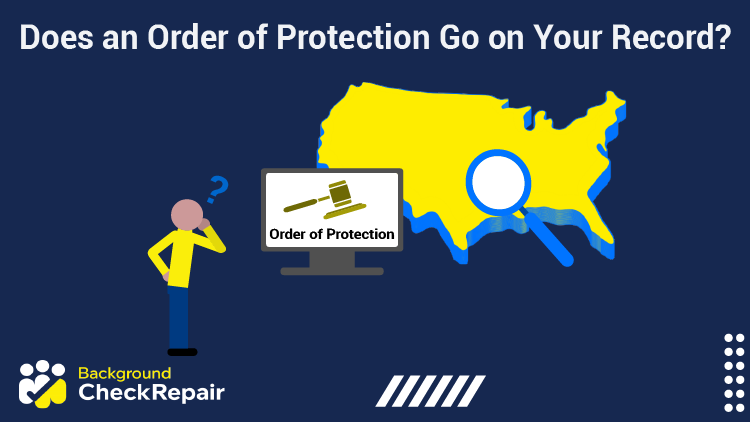
Table of Contents
Does an order of protection go on your record in all 50 states?
The answer may be a surprise to many people.
Despite how serious a restraining order can be to the individual involved, it is actually unlikely to show up on the individual’s record for most background checks.
However, that does not mean that the restraining order will not show up…there are a number of factors involved including where and why the order was issued, and whether or not is is connected to an actual arrest.
Moreover, the time when the order was issued plays a role. So, does an order of protection go on your record in all 50 states? This guide explains the full answer.
Does an order of protection go on your record is a common question asked by individuals concerned about how a restraining order will affect their criminal record and things like pre-employment background checks or background checks for tenants.
Luckily, the majority of restraining orders will have very little effect on these kinds of background checks and will not end up on the individual’s criminal history record.
Why?
The main reason that restraining orders, or protective orders, are unlikely to impact an individual’s record is that they are normally filed in civil or family courts, as opposed to a criminal court. Many people are under the impression that all court records are publicly available, regardless of the kind of court.
Although this is technically true, it is slightly more complicated.
The Freedom of Information Act, requires that all court records that are in the public interest be made publicly available.8
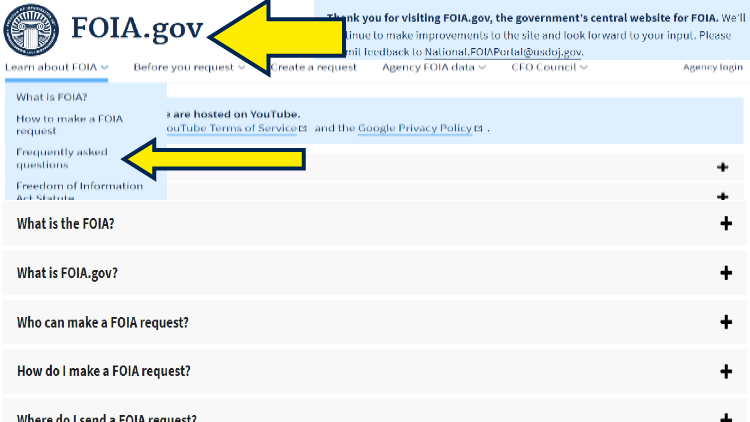
Court records filed in family court are often prevented from public view, so unless an order of protection is filed in criminal court, the order will not show up in most states.
It’s fairly clear as to why all criminal records are publicly available under this definition, as people should be able to know about the criminal proceedings in their community as it could have a direct effect on their safety and the safety of loved ones.
However, this idea of public interest is slightly less clear when it comes to family and civil court records.
Both of these courts deal with private family and personal matters in most of cases. These cases are rarely relevant to the public and many of the documents for these cases will contain personal information about those involved, including children in many instances.
Since this information could be potentially harmful to those involved should it be publicly available and because the public has very little to gain from learning this information, many judges will elect to seal the records at the conclusion of the proceedings. This is where restraining orders are impacted.
The majority of restraining orders and protective orders are filed in family court, which means the records are usually sealed and thus not part of the public record.6 When a record is sealed, it is no longer accessible by the general public and the court documents may only be requested by the individuals involved and their legal representation without a court order.
This effectively keeps restraining orders from appearing on an individual’s record, unless the order was issued in conjunction with a criminal arrest. in that case, the order of protection may appear on a background check.
The main exception to this is restraining orders that were filed in criminal court. Although most are filed in family court, in many cases such as incidents involving domestic violence, a judge will grant an order of protection as part of the criminal proceedings.
Since criminal records are rarely sealed, this information will be public and the criminal charges as well as the restraining order-related documents will be available to the public and will show up on the individual’s criminal record.
| Does an Order of Protection Go on Your Record in Each State? | State Law on Protection Orders |
| Alabama | Unviolated: No Violated and Convicted: Yes, until expunged Alabama Administrative Office of Courts |
| Alaska | Unviolated: No Violated and Convicted: Yes, until expunged Domestic Violence Order Protective Order Process |
| Arizona | Unviolated: No Violated and Convicted: Yes, until expunged A.R.S. §13-3602 |
| Arkansas | Unviolated: No Violated and Convicted: Yes, at least 5 years Ex Parte Order of Protection Form |
| California | Unviolated: No Violated and Convicted: Yes, at least until end of probation Enforce a Restraining Order |
| Colorado | Unviolated: No Violated and Convicted: Yes, at least 3 years County Court Restraining Orders |
| Connecticut | Unviolated: No Violated and Convicted: Yes, at least 3 years Criminal Orders of Protection |
| Delaware | Unviolated: No Violated and Convicted: Yes, at least 3 years Protection From Abuse Process |
| Florida | Unviolated: No Violated and Convicted: Yes, until expunged Domestic Relations |
| Georgia | Unviolated: No Violated and Convicted: Yes, until expunged Georgia Commission on Family Violence |
| Hawaii | Unviolated: No Violated and Convicted: Yes, until expunged Order Violations |
| Idaho | Unviolated: No Violated and Convicted: Yes, but will vary depending on classification of crime committed Idaho Section 39-5212 |
| Illinois | Unviolated: No Violated and Convicted: Yes, but will vary depending on classification of crime committed Orders of Protection |
| Indiana | Unviolated: No Violated and Convicted: Yes, at least 5 years Protection Order |
| Iowa | Unviolated: No Violated and Convicted: Yes, at least 6 months Enforcement Of Protective Orders |
| Kansas | Unviolated: No Violated and Convicted: Yes, but will vary depending on classification of crime committed Protection From Abuse |
| Kentucky | Unviolated: No Violated and Convicted: Yes, at least 6 months Domestic Violence |
| Louisiana | Unviolated: No Violated and Convicted: Yes, until expunged Domestic Violence Offenses |
| Maine | Unviolated: No Violated and Convicted: Yes, at least 5 years Violation of Protective Order |
| Maryland | Unviolated: No Violated and Convicted: Yes, until expunged Domestic Violence: Protective Orders |
| Massachusetts | Unviolated: No Violated and Convicted: Yes, at least 3 years Abuse & Harassment Court Orders |
| Michigan | Unviolated: No Violated and Convicted: Yes, at least 7 years Personal Protection Orders |
| Minnesota | Unviolated: No Violated and Convicted: Yes, at least 1 year 2022 Minnesota Statutes 629.72 |
| Mississippi | Unviolated: No Violated and Convicted: Yes, at least 5 years Domestic Abuse Protection Order |
| Missouri | Unviolated: No Violated and Convicted: Yes, at least 3 years Chapter 455, Missouri Revised Statutes |
| Montana | Unviolated: No Violated and Convicted: Yes, at least 5 years Montana Code Annotated 2021 Violation of Order of Protection |
| Nebraska | Unviolated: No Violated and Convicted: Yes, at least 3 years Nebraska Revised Statute 42-924 |
| Nevada | Unviolated: No Violated and Convicted: Yes, but will vary depending on circumstances Chapter 33 – Injunctions; Protection Orders |
| New Hampshire | Unviolated: No Violated and Convicted: Yes, at least 3 years Chapter 10: Violations Of Protective Orders And Contempt |
| New Jersey | Unviolated: No Violated and Convicted: Yes, at least 5 years Enforcement And Modification of TRO |
| New Mexico | Unviolated: No Violated and Convicted: Yes, at least 6 years Civil Restraining Order |
| New York | Unviolated: No Violated and Convicted: Yes, at least 10 years Violation of an Order of Protection |
| North Carolina | Unviolated: No Violated and Convicted: Yes, at least 2 years How to Get a Protection Order |
| North Dakota | Unviolated: No Violated and Convicted: Yes, until expunged Domestic Violence Protective Order |
| Ohio | Unviolated: No Violated and Convicted: Yes, at least 3 years Ohio Revised Code Section 2919.27 |
| Oklahoma | Unviolated: No Violated and Convicted: Yes, until expunged Oklahoma Protective Orders |
| Oregon | Unviolated: No Violated and Convicted: Yes, at least 3 years Protective Orders Overview |
| Pennsylvania | Unviolated: No Violated and Convicted: Yes, but will vary depending on classification of crime committed Protection Orders |
| Rhode Island | Unviolated: No Violated and Convicted: Yes, at least 5 years How To Get A Temporary Restraining Order |
| South Carolina | Unviolated: No Violated and Convicted: Yes, at least 5 years Protection from Domestic Abuse Act |
| South Dakota | Unviolated: No Violated and Convicted: Yes, at least 10 years Protection Order Guide and File |
| Tennessee | Unviolated: No Violated and Convicted: Yes, at least 5 years Order of Protection FAQs |
| Texas | Unviolated: No Violated and Convicted: Yes, at least 3 years Texas Family Code Title 4. Subtitle B. Chapter 82 Subchapter A. Application for Protective Order |
| Utah | Unviolated: No Violated and Convicted: Yes, at least 5 years Utah Judicial Code Chapter 7: Protective Orders and Stalking Injunctions |
| Vermont | Unviolated: No Violated and Convicted: Yes, at least 5 years VT ST T. 13 § 1030(a),(b) |
| Virginia | Unviolated: No Violated and Convicted: Yes, but will vary depending on classification of crime committed Code of Virginia § 18.2-60.4 |
| Washington | Unviolated: No Violated and Convicted: Yes, at least 5 years Chapter 7.105 RCW |
| West Virginia | Unviolated: No Violated and Convicted: Yes, at least 1 year West Virginia Code § 48-27-903 |
| Wisconsin | Unviolated: No Violated and Convicted: Yes, at least 5 years Temporary Restraining Order Form |
| Wyoming | Unviolated: No Violated and Convicted: Yes, at least 10 years Wyoming Statutes § 7-3-510(c) |
When asking, does a restraining order appear on your record, the answer is fairly simple. A restraining order that was filed in civil or family court will rarely show up on the individual’s record due to civil and family court records usually being sealed.
However, restraining or protective orders that were filed in a criminal court will show up on an individual’s criminal record and will be publicly accessible.
Many individuals may be in a situation where they are unsure of what kind of restraining order they have or may simply be paranoid about a restraining order showing up on their record due to an upcoming background check or similar situation. Those worried about their record can simply perform a restraining order background check on themselves to get a better idea of what is on their record and what employers are likely to see should they run a background check on the individual.
Running a background check on yourself is extremely easy and can be done in a number of ways. The easiest method is to use the search bar at the top of this page to perform a public records search on the name entered, which will give individuals an idea of what kind of information is on their public record.
Individuals can also perform a background check on themselves for free using an online background check service that offers a free trial. Finally, the most thorough background check that is currently available to the general public is the FBI’s identity history summary check.2
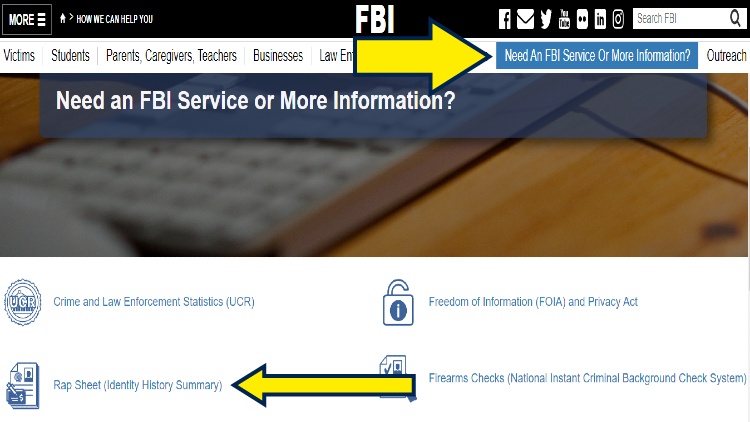
The FBI and other law enforcement agencies can still see orders of protection if they are filed in family court, but that information is not released to the public.
The federal background check is the most intensive background check that individuals can purchase and will give the most accurate information.
Many individuals will be confused about the different terms used in regard to restraining orders and might be confused as to what is a protective order, compared to a restraining order. Generally, a restraining order and a protective order are the same exact thing and the terms are usually used interchangeably.
Both of these orders refer to when a judge orders one individual to stay away from another individual.
Contrary to common belief, these orders don’t simply mean the individual can not come within a certain distance of the individual, instead, they will outline what kinds of contact are permitted if any. In most cases, a restraining order will involve no contact of any kind including electronic, in-person, or by mail.
They will also usually require the individual stay away from the petitioner’s residence, work, children, school, etc. Rather than just the individual.
As mentioned, protective order and restraining order are usually used interchangeably, however, this is not always the case. Some states will use these terms for specific purposes.
For example some states use protective orders for civil cases and use restraining orders for criminal cases.
Finally, it’s important to note that restraining orders do not have to be between two people. In some cases, a judge may order an individual to stay away from a specific place or even a specific piece of property.
Although they are most commonly associated with domestic disputes, restraining orders can also be filed between coworkers or neighbors who are having disputes.
Another common question individuals have is, are restraining orders public knowledge, which will vary from case to case. As mentioned, restraining orders filed in civil court are usually not public record and are not public knowledge.
However, criminal restraining orders will be public knowledge.
There is a common misconception that individuals who have restraining orders for domestic violence are in a database that individuals can search. Although such databases exist, such as New Jersey’s central registry, these are not public databases.5
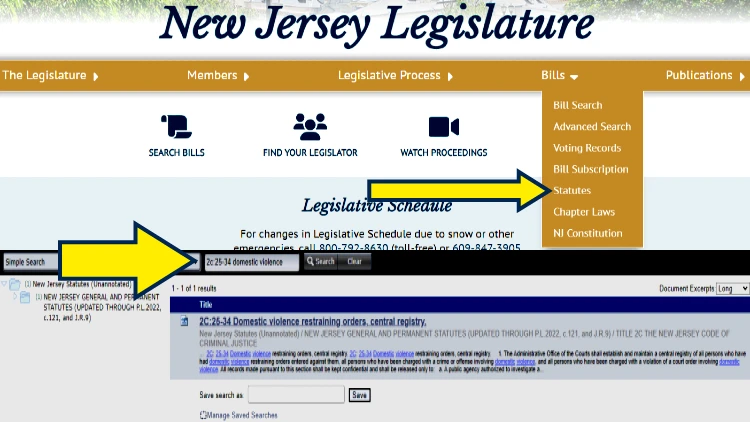
Some states allow users to search domestic violence orders or protection statues online.
Instead, they are used to track domestic violence from a law enforcement perspective and can only be used by official agencies.
Individuals who had protective orders filed in a criminal court might be wondering, how long a restraining order stays on your personal record and will want to know how it will affect future background checks.
Before individuals worry about how long the order will be on their record, they should first answer the question of, does an order of protection go on your record, since the order is on their record might not be an issue at all.
If a restraining order was filed in criminal court, as they often are in cases of criminal domestic violence then it will be dependent on state laws regarding criminal histories when it comes to how long it will appear on the individual’s record.7
The FCRA outlines federal laws for background checks and criminal history and does not have any limits in regard to how far back criminal history searches can go on an individual.9
However, many states have adopted their own laws that limit criminal history searches to only going back 7-10 years.
There are only a few of these 10-year states, so in the vast majority of states, a restraining order will remain on the individual’s record forever.
When it comes to does a temporary restraining order stays on your personal record, the answer is very straightforward. Temporary restraining orders or TROs are almost always filed in civil court and will only last until the hearing for the final or permanent restraining order.
Since this is a civil court issue, a temporary restraining order will almost never appear on an individual’s record.
Many individuals will want to know, does a restraining order go on your background check, and may be worried about how it might affect their job opportunities. As mentioned, restraining orders filed in criminal court will appear on the individual’s background check.
However, the majority of protective orders are filed in family court and will not appear on a background check.
With that being said, there are exceptions to this that individuals should be aware of. Most employers perform criminal background checks by looking at records from the local criminal courts where the individuals have lived over the last several years.
Although it is fairly rare for an employer to check civil court records, they are technically able to do so. If an employer searches civil court records then a restraining order could show up if the records were not sealed.
The other exception individuals should be aware of is for background checks that are performed by official agencies such as the FBI.3
The FBI background check that is required for many jobs in the federal government and will be able to access records that have been sealed.
This means that restraining orders filed in civil court are likely to show up on an FBI background check.
Many individuals will be concerned about, does a restraining order ruin your life, and the long-term effects of having a protective order filed against them. Although a restraining order will not have a major impact on an individual’s day-to-day life, there are some long-term effects that individuals should know about.
The most obvious is that individuals will face a misdemeanor or felony for violating the order, which means they will likely never be able to contact the individual that filed the order again, or at least for several years. This can be an especially big issue if children are involved as they are often included in the restraining order.
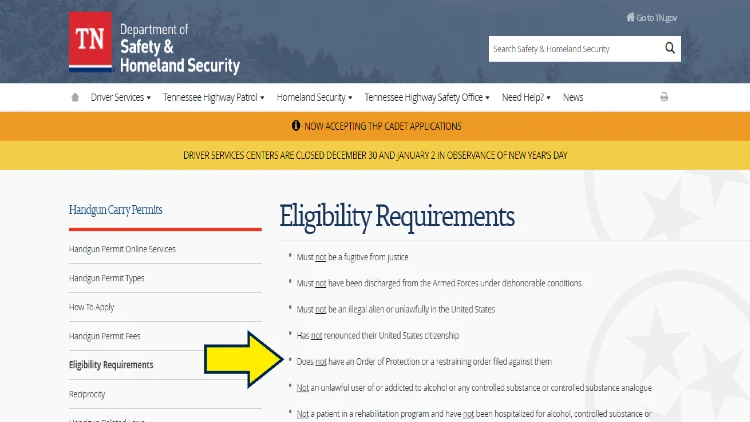
Another long-term impact is that individuals who have a restraining order against them for domestic violence will not be able to purchase a firearm in the United States for the rest of their lives.4
After having a restraining order filed one of the first questions on a lot of people’s minds is, can you lose your job if you have a restraining order, despite most protective orders being civil in nature, it is possible to be fired over an order. This is generally a matter of company policy and also due to the fact that most restraining orders will involve criminal charges such as domestic violence.
Individuals might have heard about a no contact order or may have even had one filed against them. Even those familiar with restraining order laws might be wondering, does a no contact order show up on a background check, and will want to prepare for how it might affect their life.
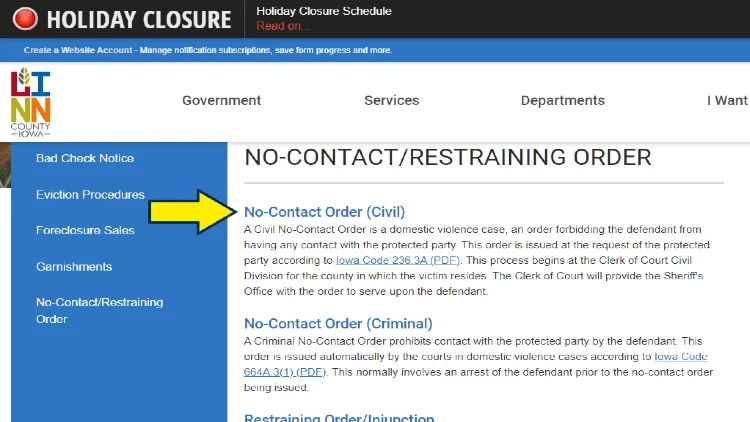
No contact orders and restraining orders are generally used interchangeably. No contact orders are a type of restraining order used in some states and are used almost exclusively in civil court and thus are unlikely to appear on a background check.
Many individuals will be wondering how to get a restraining order off your record, to limit its impacts on lease or job applications. If the restraining order is on the individual’s record at all, this will mean that it was filed in a criminal court.
Criminal court records can be sealed or expunged, which will prevent the information from appearing on the individual’s record, however, the process is notoriously difficult. Each state will have its own rules and laws regarding what crimes are eligible for sealing or expungement.
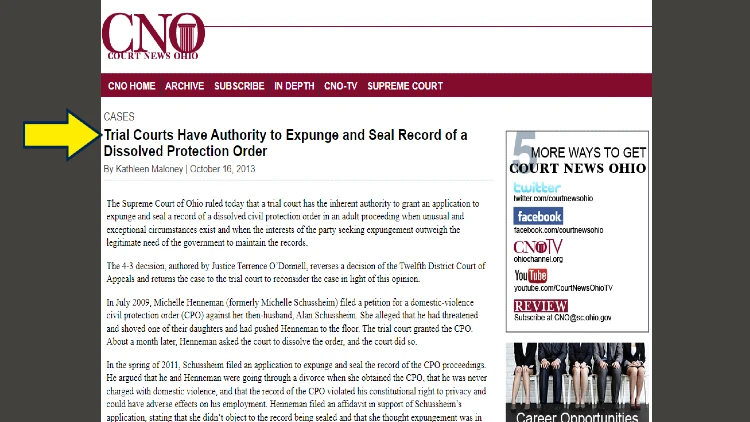
Even if these conditions are met, the odds of getting a crime sealed are fairly slim, unless the crime is of an extremely low level.
As far as getting a restraining order that was the result of a criminal charge removed from your record, the odds of getting this sealed are next to none. Many states will not allow for any felonies to be sealed and some states even explicitly prohibit violent crimes of any kind from being sealed.
There is a lot of confusion regarding criminal charges and restraining orders that are dismissed and how they will affect an individual’s record. So in regards to, if a restraining order is dismissed does it go on your record, assuming the order was filed in civil court then it will not appear on a background check.
However, criminal charges of any kind will appear on an individual’s record, even if they are dismissed. This is because criminal history searches look at court records of any kind, so if charges are officially filed they will appear on the individual’s criminal record, even if the charges were dropped or dismissed.
When it comes to, does a domestic violence restraining order show up on a background check, individuals should expect this information to appear. If a restraining order is filed as a result of domestic violence charges, then there will likely be criminal charges involved which will almost always appear on a background check.
Individuals considering getting a restraining order will rightly be concerned about retaliation, and might be wondering, if you get a restraining order against someone will they know, the answer might be disappointing to some individuals.
Individuals who have a restraining order filed against them will be notified when the initial TRO is filed and will be required to appear in court to plead their case in front of a judge during the final restraining order hearing. If the judge decides to file the final restraining order, the individual will be served documents so that it is documented they are aware of the restrictions.
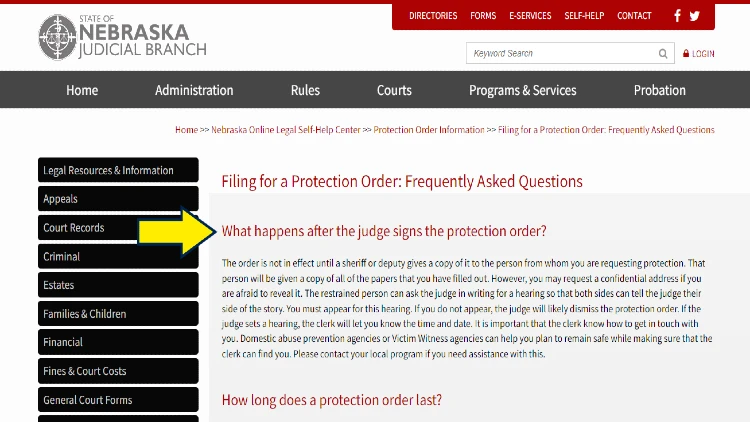
Simply put, in order for a restraining order to be enforced, the individual must be aware that the order was filed against them and understand the parameters of the order.
Those wondering, is a restraining order a criminal charge, should know that the vast majority of restraining orders are civil or family court issues. However, restraining orders often accompany criminal charges, such as domestic violence.
When it comes to, can a restraining order prevent you from getting an apartment, the answer is fairly circumstantial. Most apartment background checks will check civil court records to see if the individual has ever been evicted or sued by a previous landlord.
This means that restraining orders could appear on a background check if they are not sealed. Whether or not this information will lead to the landlord denying the lease application will vary, however they are legally allowed to deny an application due to this information.1
Even though the question of, does an order of protection go on your record, has a fairly complicated answer, it is still relatively easy to figure out for sure. Although it is fairly unlikely for this information to appear on a background check, individuals can always perform a background check on themselves to know for certain.
Individuals should always be aware of their legal rights when it comes to background checks and what kind of information is on their record. When it comes to does an order of protection go on your record, individuals should know that only criminal court information is likely to appear on an individual’s record.
Restraining orders will be considered public information if they are filed in criminal court, however most restraining orders are filed in civil or family courts and are usually sealed.
Restraining orders filed in criminal court will likely stay on the individual’s record forever, but state law may limit the order from only being present on their record for 7-10 years.
Restraining orders will only show up on a background check if they are filed in criminal court in most cases.
A restraining order background check can help individuals understand what information is on their record and if a restraining order is likely to show up on a pre-employment background check.
A temporary restraining order will likely not show up on your record at all since they are usually filed in civil or family court.
Employers will generally not be notified of a restraining order since they are usually civil court issues.
Restraining orders only show up on background checks if they were filed in criminal court.
Restraining orders are usually filed in civil court, civil court information is rarely checked on a background check.
1Cornell Law School. (2022). Landlord-Tenant Law. Legal Information Institute. Retrieved December 9, 2022, from <https://www.law.cornell.edu/wex/landlord-tenant_law>
2Federal Bureau of Investigation. (2022). Identity History Summary Checks (Rap Sheets). FBI. Retrieved December 9, 2022, from <https://www.fbi.gov/how-we-can-help-you/more-fbi-services-and-information/identity-history-summary-checks>
3Federal Bureau of Investigation. (2022). We protect the American people and uphold the U.S. Constitution. We protect the American people and uphold the U.S. Constitution. Retrieved December 9, 2022, from <https://www.fbi.gov/>
4Hanson, B. (2016, December 13). Firearms and Domestic Violence: The Intersections. The United States Department of Justice Archives. Retrieved December 9, 2022, from <https://www.justice.gov/archives/ovw/blog/firearms-and-domestic-violence-intersections>
5The Office of Legislative Services. (2022). 2C:25-34 Domestic violence restraining orders, central registry. New Jersey Legislature. Retrieved December 9, 2022, from <https://lis.njleg.state.nj.us/nxt/gateway.dll?xhitlist_vq=2C%3A25-34+Domestic+violence+restraining+orders%2C+central+registry.&f=xhitlist&xhitlist_q=%5BRank+100%5D%5BDomain%3A+2C%3A25-34+Domestic+violence+restraining+orders%2C+central+registry.%5D2C%3A25-34+Domestic+violence+restraining+orders%2C+central+registry.&xhitlist_x=advanced&xhitlist_s=relevance-weight&xhitlist_mh=99999&xhitlist_d=&xhitlist_hc=%5BXML%5D%5BKwic%2C25%5D&xhitlist_xsl=xhitlist.xsl&xhitlist_vpc=first&xhitlist_vps=20&xhitlist_sel=title%3Bpath%3Brelevance-weight%3Bcontent-type%3Bhome-title%3Bitem-bookmark%3Btitle-path%3Bhit-context&vid=Publish:10.1048/Enu>
6US Department of Health and Human Services. (2021, February 15). Getting a Restraining Order. Office of Women’s Health. Retrieved December 9, 2022, from <https://www.womenshealth.gov/relationships-and-safety/domestic-violence/getting-restraining-order>
7US Department of Justice. (2022). Domestic Violence. The United States Department of Justice. Retrieved December 9, 2022, from <https://www.justice.gov/ovw/domestic-violence>
8US Department of Justice. (2022). Freedom of Information Act. FOIA.gov. Retrieved December 9, 2022, from <https://www.foia.gov/>
9US Government. (2022). Fair Credit Reporting Act. Federal Trade Commission. Retrieved December 9, 2022, from <https://www.ftc.gov/legal-library/browse/statutes/fair-credit-reporting-act>
We use cookies to ensure that we give you the best experience on our website. If you continue to use this site we will assume that you are happy with it